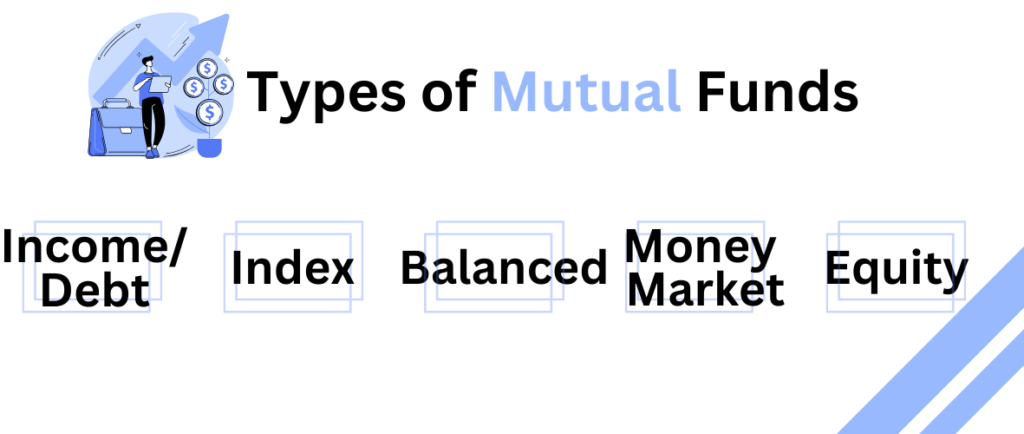Individual investors have access to a diverse array of assets managed by qualified fund managers through mutual funds. Mutual funds offer exposure to a range of asset types, including stocks, bonds, and real estate, by pooling investors’ capital. However, are mutual funds a good investment? In order to assist you decide whether mutual funds are a good investment or not, this article will go into greater detail about them and address any concerns you may have about their main features, advantages, dangers, applications, and alternatives.
What Exactly is a Mutual Fund?
A mutual fund is a type of professionally managed investment fund that invests in a portfolio of stocks, bonds, and other assets after pooling the money of several investors. Professional analysts that study various industries to decide where to allocate capital for the best returns are the fund managers.
Depending on the fund’s investment objective—which could include investing in large-cap stocks, municipal bonds, or real estate—they seek to assemble a portfolio of diverse securities. By purchasing units or shares in a mutual fund, anyone can get a portion of the whole investment portfolio. The performance of the fund determines the daily fluctuations in the net asset value (NAV) per share. Investors using mutual funds have access to a combined portfolio that is much larger than what they could create on their own, together with automatic diversification and daily liquidity.
What are the Different Types of Mutual Funds?

Based on investing goals, there are many strategies within the general category of mutual funds. The primary concentration of stock or equity funds is on publicly traded firms; they may invest in large caps, mid caps, small caps, or more specialized sectors, both domestically and internationally. The primary objective of bond or fixed-income funds is to generate interest income through the purchase of debt instruments such as corporate, municipal, and federal treasuries.
For blended returns, balanced or hybrid funds keep a combination of bonds and equities in their portfolio. With little to no active management, index funds seek to closely mimic the composition and performance of a market index such as the S&P 500. Sector funds focus on particular sectors of the economy or topics, such as technology, clean energy, healthcare, or finance. The variety allows matching funds with individual risk tolerance, time horizon, and specific investment needs.
What are the Benefits of Investing in Mutual Funds?
Mutual funds have become popular for mass affluent investors due to certain benefits. Fund managers conduct extensive research teams to identify profitable opportunities, unlike regular investors. By owning a portfolio of 20+ securities, non-systematic risk is reduced unlike holding a single stock. Mutual funds have low starting limits of $1,000 or less for affordable participation. Shares can be redeemed daily based on the fund’s net asset value calculation providing ready access to capital. Funds manage all transactions internally without the need for stock picking or active management by investors. Flexibility in sector, cap size, and objective variations suit all stages of the financial lifecycle and risk profiles.
What are Some Potential Risks of Mutual Fund Investing?
Potential risks include fund value fluctuating with broader market performance impacting all holdings. The skills, research, and decisions of a human portfolio manager running an actively managed fund may not generate the returns promised over time. A fund could shift focus away from the stated investment style over the years. Annual operating costs for management, compliance, and distribution eat into overall returns, especially for underperforming funds. Selling mutual fund shares in a non-retirement account can trigger capital gains tax obligations to be paid by the investor. Diversity and a long-term buy-and-hold approach help mitigate these risks.
When Are Mutual Funds Ideally Suited?

Mutual funds generally work best for most mainstream investors in certain scenarios. For those without sufficient expertise to research individual securities, funds provide instant diversification. Matching funds with goals 15-20+ years away allows benefitting from market fluctuations through dollar cost averaging. Target date funds offer glide paths suitable for accumulating and drawing down retirement savings. Funds facilitate affordable periodic investing and long-term buy and hold approaches. Their ability to implement these strategies makes mutual funds a good investment.
What are Some Alternatives to Mutual Funds?
While funds cover core bases well, alternatives may suit specific goals depending on risk tolerance, timeline, and preferences. ETFs provide similar diversification at potentially lower costs but require a brokerage account. Individual stocks suit the high risk-tolerant focused on specific themes or companies seeking outsized returns if successfully selected. Robo advisors construct globally diversified ETF portfolios with automated rebalancing for minimal fees. Peer-to-peer lending invests in personal or business loans through online platforms in fixed-income assets. Real estate offers sector-specific exposure through REITs, crowdfunded deals, or physical assets. Understanding alternatives helps maximize portfolio opportunities.
Disclaimer
The information contained in this article is for educational and informational purposes only. Nothing within the article constitutes investment, legal, or tax advice.
Finance Today does not endorse or recommend any investments discussed herein. We encourage readers to conduct their own research about mutual funds and any securities mentioned. Past performance is no guarantee of future results. Investment products and opportunities come with different levels of risk, and readers should understand all risks involved before making any financial decisions.













